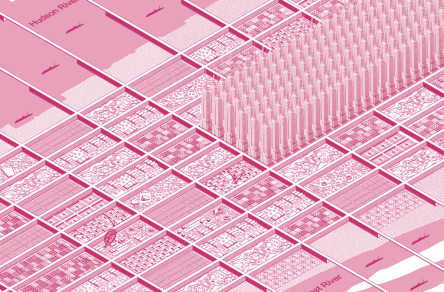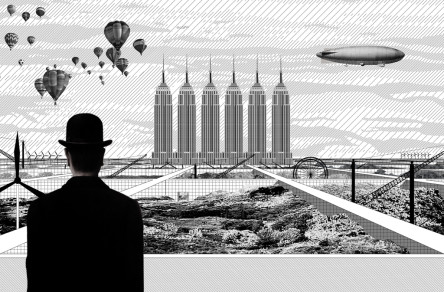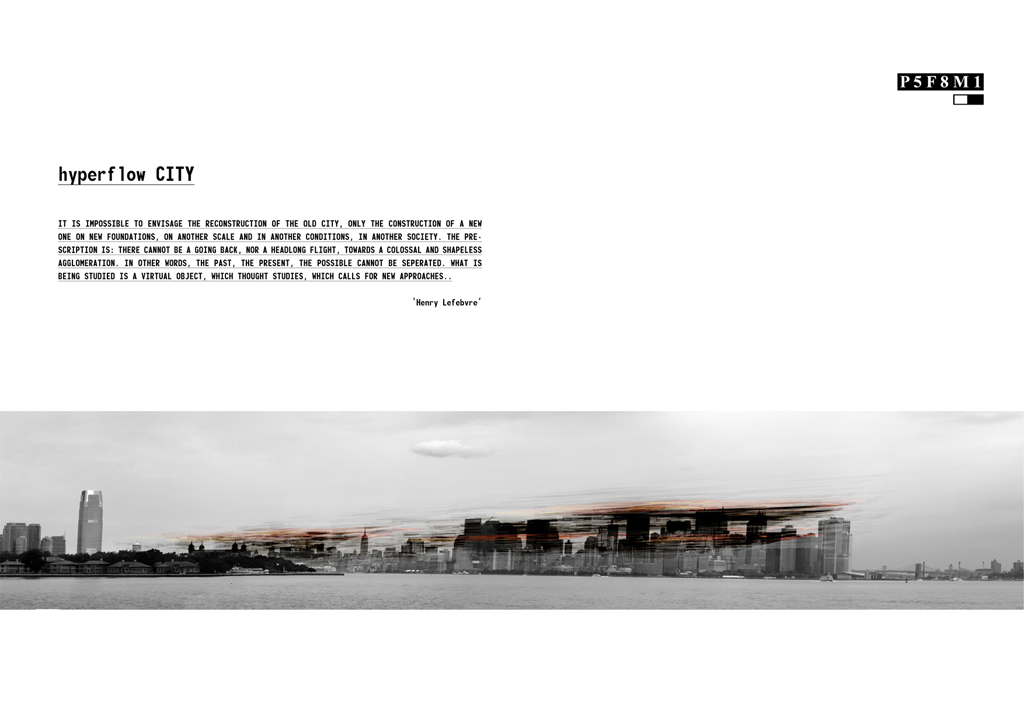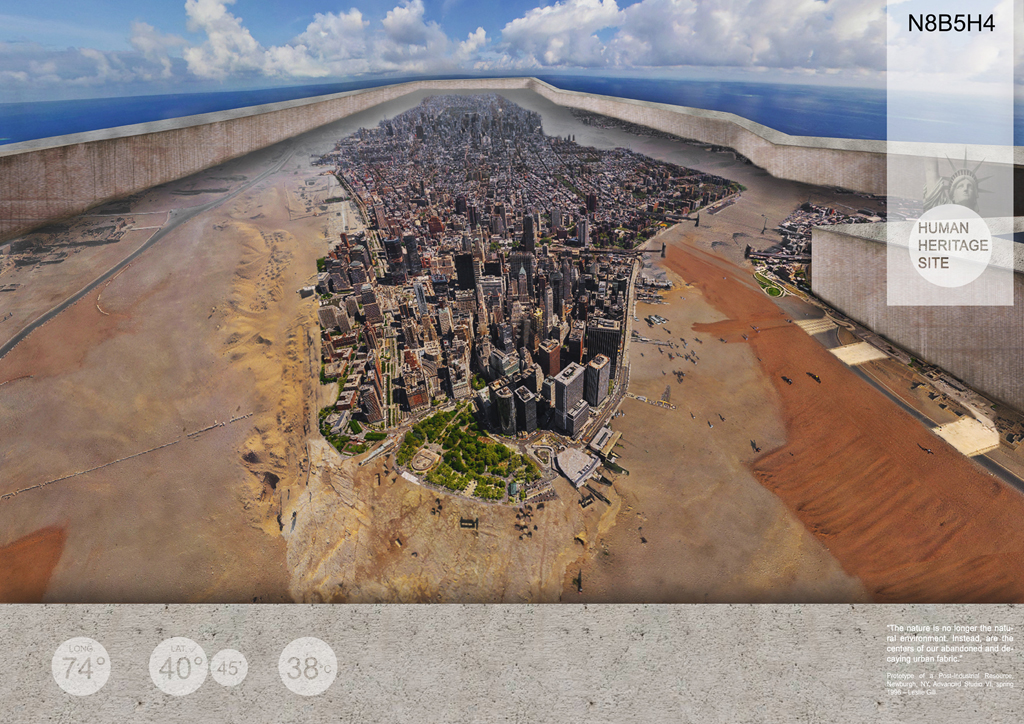Info:
Title: Rezoning Manhattan - Code: P1A9V6Contest: NY / 2012
By: F. Furiassi
Views: 15704 Likes: 8
Votes:
JOSHUA PRINCE-RAMUS7 EVA FRANCH I GILABERT5 ROLAND SNOOKS9 SHOHEI SHIGEMATSU1 ALESSANDRO ORSINI5 MITCHELL JOACHIM14.7
Rezoning Manhattan

 In the introduction of Delirious New York, Rem Koolhaas argues that the creation of Central Park was “an act of taxidermic preservation of nature that exhibits forever the drama of a culture outdistancing nature“. In that image it looks as though Manhattan’s architecture imprisons the nature within Central Park’s border, both to attest the progress of metropolis and to verify the superiority of the mental construction over the reality. It was the result of a previous conceptual speculation started with the introduction of the urban grid and the construction of skyscrapers.
In the introduction of Delirious New York, Rem Koolhaas argues that the creation of Central Park was “an act of taxidermic preservation of nature that exhibits forever the drama of a culture outdistancing nature“. In that image it looks as though Manhattan’s architecture imprisons the nature within Central Park’s border, both to attest the progress of metropolis and to verify the superiority of the mental construction over the reality. It was the result of a previous conceptual speculation started with the introduction of the urban grid and the construction of skyscrapers.
The technology achievements of the skyscraper along with an inadequate planning law were the incentives for the development of private interests and the perfect alibi to perform construction on the entire surface of the island, resulting in the total subjugation of nature. This unconstrained growth resulted in the dissolution of the public sphere. In fact, in order to get permission to construct taller buildings, developers agreed with the city government that they would envisage public spaces in their schemes. Nonetheless, these spaces were designed to stay firmly under private control. As a matter of fact, the nearly five hundred existing public spaces on the island are for the most part “privately owned space”, or rather places with restricted accessibility, where a limited set of activities is tolerated, as recently highlighted by the events starring the Occupy Wall Street movement in Zuccotti Park. Therefore, aside from the Central Park enclave, Manhattanites faced a shortage of free domain places, which they are now claiming more than ever. The demand for squares, parks, meeting places and public infrastructures is constantly growing in Manhattan, and every new pedestrian area opened in the city fills up instantly, witness the High Line.
However, despite the initiative taken by the authorities to encourage the re-appropriation of urban areas by pedestrians, the issue of public space is still unresolved and has now become crucial. We have now lost contact with the others and nature. Moreover, the current economic and energy crisis requires the rethinking of the use of land to fulfill social needs, including sustainable production.
In an article published on The New York Times, Alexander Garvin (architect, urban planner, professor and veteran of five city administrations) argues that “the city should reverse its approach [...] by thinking first about the shape of public space instead the private development“. It would be possible by matching the private interests with the public sphere. For example, when Broadway was closed to traffic and Times Square became a pedestrian plaza, retail sales increased, and local shop owners reaped the benefits, contrary to what some businesses there feared. Hence, if from the beginning the city was organized with a similar approach, it might be a large public space.
“Rezoning Manhattan” is both a funny game and a polemic operation that takes note of these considerations. It hinges on the dialectic between private and public, and between built and unbuilt, providing a vision of reversed zoning. It expressly cannot and does not want to prescribe a solution, but it has the unique prerogative of provoking a reflection to the viewer.
So, if the private space becomes public and vice versa, the resulting image of the city is the following: the built up land is liberated into a traversable territory which can be re-configurated according to the community needs; the infrastructure grid becomes available for building and eventually extruded for mixed use functions; while Central Park is possibly invaded by skyscrapers.
In this scenario nature is no longer the prisoner, but architecture is…






